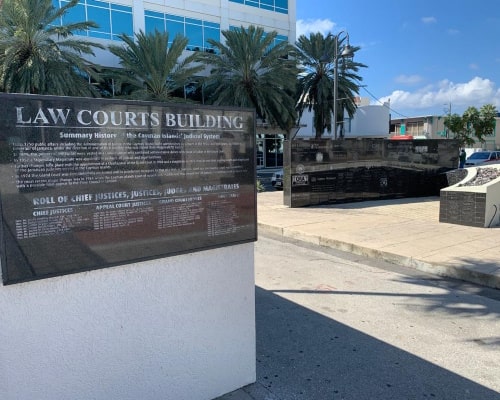Judge saves crown gun case despite dodgy warrant
(CNS): A Grand Court judge has ruled that an unlicensed gun and several rounds of ammunition recovered by police during a targeted operation in Savannah last year can be used as evidence in the case against Jay Ebanks (22), despite a less than perfect warrant. The Bodden Town man, who was arrested in August following a raid at his mother’s house, argued that the warrant used by police to search the property then seize the gun and ammunition was defective as there was no date or police officer’s name on it, so the firearm should not be admitted into evidence against him.
But while the judge accepted that the warrant was defective, he said that for the evidence seized not to be legally admissible there needed to be evidence of improper conduct on the part of the police or that they had acted in bad faith, rather than just technical errors. On this occasion the technical omissions on the warrant did not alter the fact that during a search based on legitimate suspicions an unlicensed, illegal .38 Smith and Wesson revolver was found in the water tank in a bathroom at his house and dozens of bullets were found in his bedroom.
While Ebanks has not yet made any formal admissions of guilt, the court heard that following his arrest he had told police that his mother and girlfriend, who were also present during the raid, knew nothing about the weapon, which he said was his.
His mother, Jeanine Lewis, who is a senior immigration officer, is facing charges arising from the same raid for knowingly assisting a foreign national to land in Cayman without authorisation and permitting her house to be used for supplying cocaine and ganja. She is currently on required leave from her senior management job at immigration but she had denied the allegations and will face trial in June.
Ebanks was remanded in custody until next week, when he will return to court to enter his pleas to the gun charges. If he admits possession, he will be looking at a mandatory minimum term of seven years. If he opts to go to trial and is then found guilty, he will face a minimum of ten years behind bars.
The case, which was on this occasion saved by the judge, is not the first prosecution case that has been placed in jeopardy by a poorly executed warrant; cases and evidence have been thrown out of court in the past because of incorrect warrants. However, on this occasion there was no evidence to suggest that the warrant had not been signed based on legitimate evidence and suspicions about Ebanks by a competent justice of the peace, allowing the judge to dismiss the defence application.
If the defence had succeeded, the crown would have had no case, even though an illegal loaded weapon and dozens of rounds of ammunition had been recovered in the raid.
After a 2013 case, when local activist Sandra Catron won a judicial review on a warrant issued against her during a misuse of an ICT network allegation, the RCIPS committed to tightening up the regime surrounding warrants and all JPs must now have mandatory training. Irregularities continue, nevertheless.
Justice Alex Henderson threw out the warrant in the Catron case after he heard that the elderly JP involved had simply signed it because the police asked. The JP had admitted seeing no evidence or even understanding the alleged offence and stated that the police officer in the case had not provided any details “whatsoever regarding the warrant”, adding that the police never showed any evidence when they ask for a signature, suggesting that this was normal procedure.
Category: Courts, Crime, Immigration



































